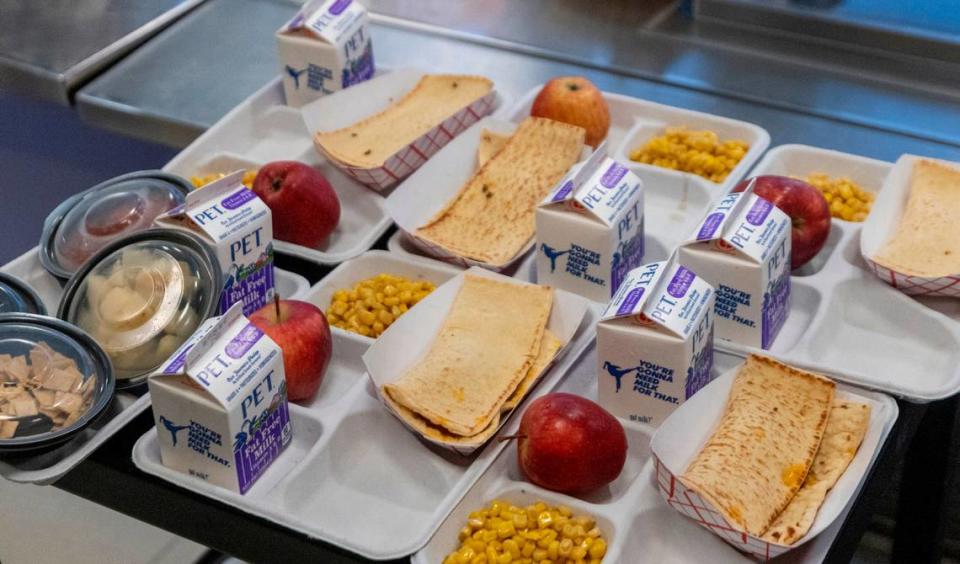Wake wants free school meals for all students in NC. Here’s what it’s doing locally.
Wake County leaders want to expand free school meals to as many students as possible, regardless of their family’s income.
Administrators briefed the school board Tuesday on a plan to potentially add 28 more schools to the federal government’s universal school meals program. That would triple the number of schools now offering free universal meals but still represent a fraction of the schools in the district.
The expansion is being promoted as a way to improve student health, attendance and academic performance by ensuring access to nutritious meals.
“Quality nutrition for children has a direct impact on student achievement,” Superintendent Robert Taylor said at a news conference Tuesday. “What we know is that a well-fed body and a well-hydrated brain makes it that much more conducive to learning.”
Taylor and other school leaders met Tuesday with Cindy Long, administrator of the U.S. Department of Agriculture’s Food and Nutrition Service, to share their concerns about child nutrition. Long and Taylor later had lunch with students at Kingswood Elementary School in Cary.

Free meal waiver has ended
Under the traditional federal school lunch program, students can qualify for a free or reduced-price meal if their family income is low enough. Other students pay the full meal price set by the school.
During the pandemic, the federal government waived rules to provide free meals to all students in the 2020-21 and 2021-22 school years.
But that waiver ended last school year.

Since then, school meal prices have continued to rise. Wake and schools across the country also have to had to deal with complaints about students being given alternative meals of fruit and vegetables when they don’t have enough money on their accounts.
There’s a federal program called Community Eligibility Provision where all students at a qualifying school would be eligible for a free breakfast and lunch.
The Biden Administration lowered the eligibility requirements to allow more school districts to qualify. Durham Public Schools is using the new rules to try to have all of its schools qualify for free meals, The News & Observer previously reported.
Academic benefits of free meals
Currently 12 Wake schools are in the CEP program. The additional 28 schools this fall would mean 40 of Wake’s 198 schools would be offering universal meals.
The federal government reimburses schools at a higher rate if they participate in the CEP program.

It’s not just a financial benefit for school systems, according to Paula De Lucca, Wake’s senior director for Child Nutrition Services.
Research shows students in North Carolina schools participating in CEP perform better academically, according to the Education Policy Initiative at Carolina.
The universal meals also eliminate the meal charges for students and addresses concerns of parents who don’t want to fill out the paperwork to request a subsidized meal.
Universal meals for all NC students
Universal meals also make schools more equitable, according to De Lucca. She said the CEP program can eliminate the stigma that causes some people to think school meal programs are only for students who need financial support.

“When it’s no-cost meals for everybody at the school then it does give the opportunity to increase participation by all kids,” Taylor told school board members. “Now you don’t have the stigma of free versus who is not.”
Taylor and a coalition of groups are supporting an effort to ask state lawmakers to fund universal free meals for all North Carolina public school students.
“The total cost that was said to cover the entire state of North Carolina for free breakfast and lunch was $125 million ( a year),” said school board member Sam Hershey. “I just want to highlight that number, which is a very small number compared to the budget and the surplus we have currently.”

